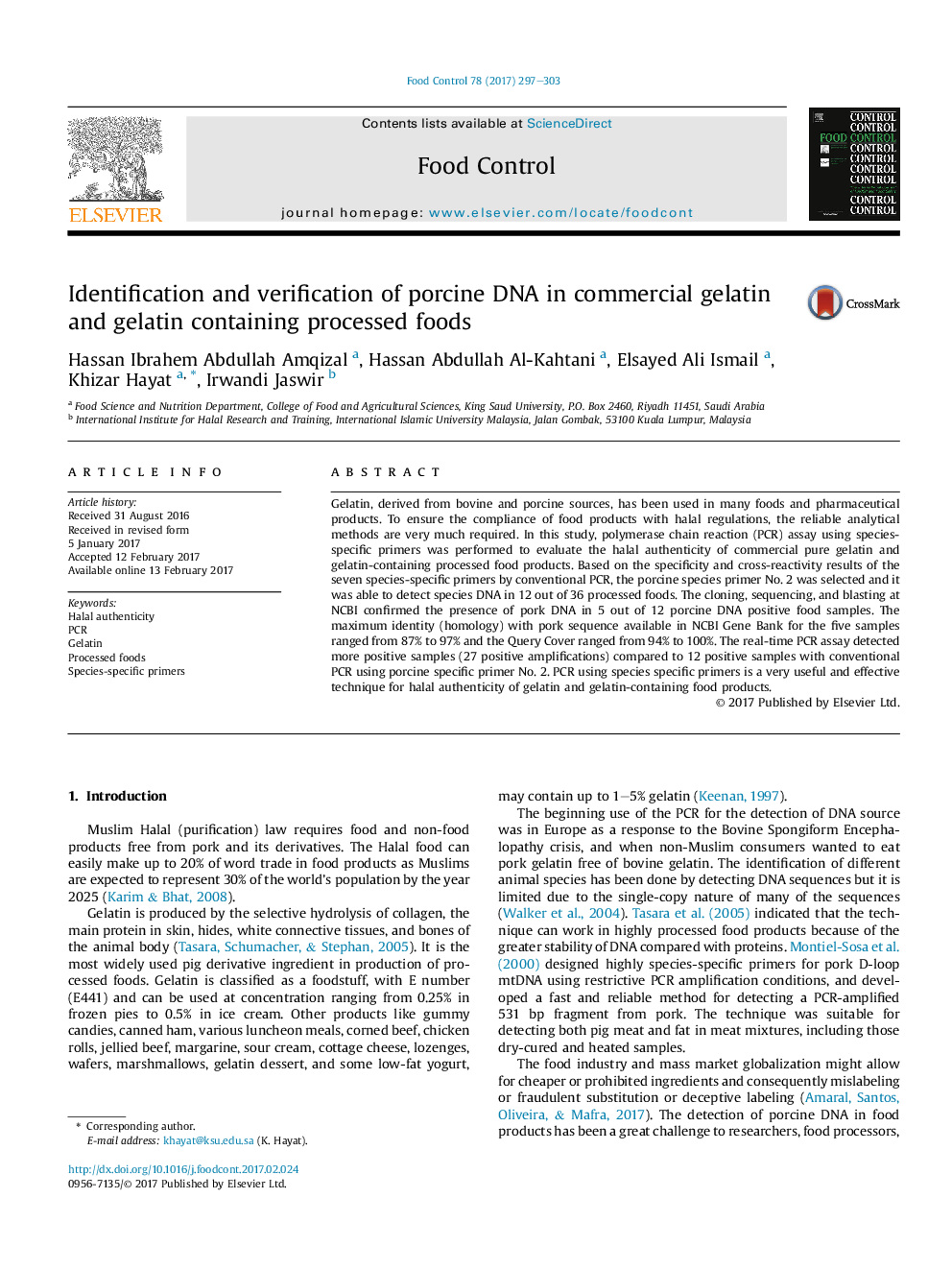| Article ID | Journal | Published Year | Pages | File Type |
|---|---|---|---|---|
| 5767518 | Food Control | 2017 | 7 Pages |
â¢Halal authenticity of gelatin and gelatin containing processed foods was established.â¢Based on the specificity and cross-reactivity, the best primer was selected.â¢It was able to detect species DNA in 12 processed foods through conventional PCR.â¢Cloning, sequencing, and blasting confirmed pig DNA in 5 food samples.â¢Real-time PCR assay detected more positive samples compared with conventional PCR.
Gelatin, derived from bovine and porcine sources, has been used in many foods and pharmaceutical products. To ensure the compliance of food products with halal regulations, the reliable analytical methods are very much required. In this study, polymerase chain reaction (PCR) assay using species-specific primers was performed to evaluate the halal authenticity of commercial pure gelatin and gelatin-containing processed food products. Based on the specificity and cross-reactivity results of the seven species-specific primers by conventional PCR, the porcine species primer No. 2 was selected and it was able to detect species DNA in 12 out of 36 processed foods. The cloning, sequencing, and blasting at NCBI confirmed the presence of pork DNA in 5 out of 12 porcine DNA positive food samples. The maximum identity (homology) with pork sequence available in NCBI Gene Bank for the five samples ranged from 87% to 97% and the Query Cover ranged from 94% to 100%. The real-time PCR assay detected more positive samples (27 positive amplifications) compared to 12 positive samples with conventional PCR using porcine specific primer No. 2. PCR using species specific primers is a very useful and effective technique for halal authenticity of gelatin and gelatin-containing food products.
